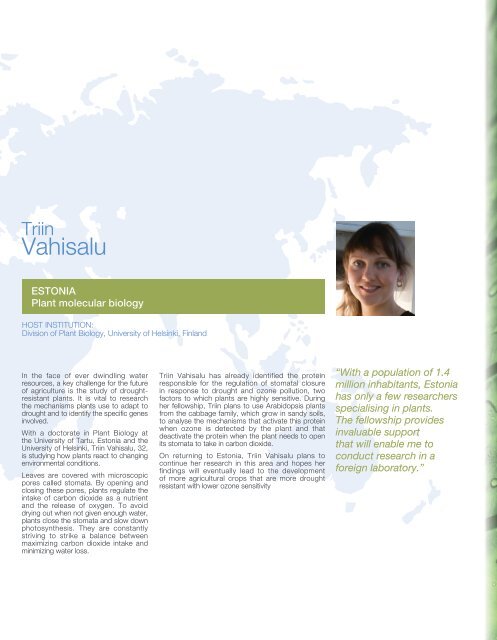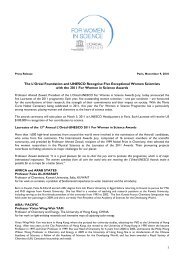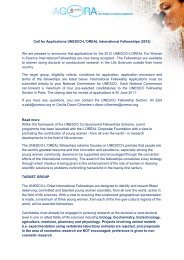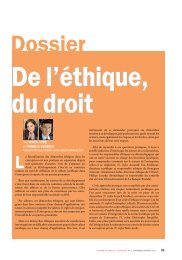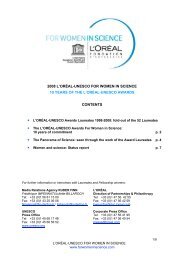2011 EDITION
2011 EDITION
2011 EDITION
You also want an ePaper? Increase the reach of your titles
YUMPU automatically turns print PDFs into web optimized ePapers that Google loves.
Triin<br />
Vahisalu<br />
ESTONIA<br />
Plant molecular biology<br />
HOST INSTITUTION:<br />
Division of Plant Biology, University of Helsinki, Finland<br />
In the face of ever dwindling water<br />
resources, a key challenge for the future<br />
of agriculture is the study of droughtresistant<br />
plants. It is vital to research<br />
the mechanisms plants use to adapt to<br />
drought and to identify the specific genes<br />
involved.<br />
With a doctorate in Plant Biology at<br />
the University of Tartu, Estonia and the<br />
University of Helsinki, Triin Vahisalu, 32,<br />
is studying how plants react to changing<br />
environmental conditions.<br />
Leaves are covered with microscopic<br />
pores called stomata. By opening and<br />
closing these pores, plants regulate the<br />
intake of carbon dioxide as a nutrient<br />
and the release of oxygen. To avoid<br />
drying out when not given enough water,<br />
plants close the stomata and slow down<br />
photosynthesis. They are constantly<br />
striving to strike a balance between<br />
maximizing carbon dioxide intake and<br />
minimizing water loss.<br />
Triin Vahisalu has already identified the protein<br />
responsible for the regulation of stomatal closure<br />
in response to drought and ozone pollution, two<br />
factors to which plants are highly sensitive. During<br />
her fellowship, Triin plans to use Arabidopsis plants<br />
from the cabbage family, which grow in sandy soils,<br />
to analyse the mechanisms that activate this protein<br />
when ozone is detected by the plant and that<br />
deactivate the protein when the plant needs to open<br />
its stomata to take in carbon dioxide.<br />
On returning to Estonia, Triin Vahisalu plans to<br />
continue her research in this area and hopes her<br />
findings will eventually lead to the development<br />
of more agricultural crops that are more drought<br />
resistant with lower ozone sensitivity<br />
“With a population of 1.4<br />
million inhabitants, Estonia<br />
has only a few researchers<br />
specialising in plants.<br />
The fellowship provides<br />
invaluable support<br />
that will enable me to<br />
conduct research in a<br />
foreign laboratory.”


